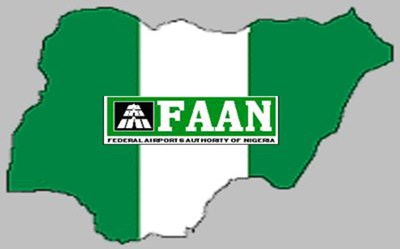Stakeholders Hail Senate For Lifting Ban On Petroleum Product Supply To Border Communities
By Babajide Okeowo

Following the directive by the Senate to the Nigeria Customs Service and the National Security Adviser to restore the supply of petroleum products to Border Communities, stakeholders in the Maritime and Business sector have hailed the development.
The federal government had on November 6, 2019, through the then Comptroller General of Customs Col Hameed Alli directed that “no petroleum products are permitted to be discharged in any filling station within a radius of 20 kilometres to the border of Nigeria.
The directive had emanated due to the rampant cases of petroleum product smuggling that was rife.
However, a few days ago, the Senate directed Bashir Adeniyi Acting Comptroller General of Customs and the NSA, Nuhu Ribadu to lift the subsisting restriction order placed on supplying petroleum products to border communities.
The Senate further mandated the soon-to-be-constituted Committee on Customs and Excise, to ensure compliance and report back to the Senate in four weeks for possible further legislative action.
This development has been hailed by some industry stakeholders who applauded the Upper Chamber for the well-thought-out directive.
According to Muda Yusuf, the Founder, Centre For The Promotion Of Private Enterprise [CPPE], it was unfair to have cut off those border communities in the first place.
“Now, is it fair for our fellow Nigerians that are living in the border communities to say that because they are living in the border area, they will not supply them Petroleum products? Is that fair?
I think what is important is that security agencies should do their job. You cannot say that because some institutions are failing, you cannot begin to penalize innocent citizens. That is not right. If the institutions are failing, please go and check those institutions” he started.
He also faulted the decision of the immediate past president of Nigeria, Muhammadu Buhari to shut the border in order to curb smuggling.
“Buhari said, because people are smuggling rice, they should close the entire border, look at the kind of pain that that policy created for people. Of course, they will say some people benefited from the policy, people like rice farmers, but rice has become more expensive while they were making business, but too many people were going hungry because the prices of food also went up. How many citizens do you have to cause that kind of agony?
Is it not better to fix the institutional problem that you have? I don’t think what the Senator has done is wrong. These people are Nigerians, they are entitled to have access to petroleum products, we should not penalize them because they are living in border communities, it is the institutions that are supposed to man the border that should be up and doing” he added.
Continuing, Yusuf said with the removal of subsidy, the incentive for smuggling has been reduced significantly as the price of petrol is almost N800 at the border areas. He advised that government should start looking at officially and legally supplying all these neighbouring countries with petroleum products to earn the much-needed foreign exchange.
“We should get to a point where we should legally supply all these neighbouring countries with official petroleum products.
The marketers should be able to load their truck and say, okay, I’m taking this to Benin Republic, I’m taking it to Togo. And that will amass foreign exchange for the country. That is where we should get to as we progress with this reform” he surmised.
On his part, Otunba Frank Ogunojemite, the President of the Africa Association of Professional Freight Forwarders and Logistics in Nigeria, APFFLON commended the Senate for the intervention while calling on the government to invest in border control technology to curb smuggling.
It’s a perfect idea because depriving them of the petrol supply could result in a breach of the Consumer Protection Act as amended.
It’s the responsibility of FG to secure and protect their borders squarely and not affect the fundamental human rights of the citizens as well, so, the Senate needs to be commended for that decision.
However, to curb smuggling, FG needs to invest in border control technology and continued training the Customs personnel and not excluding other agencies.
Also, they need robust relationships with all border users, freight forwarders, and the communities as well for effective border control” he posited.






